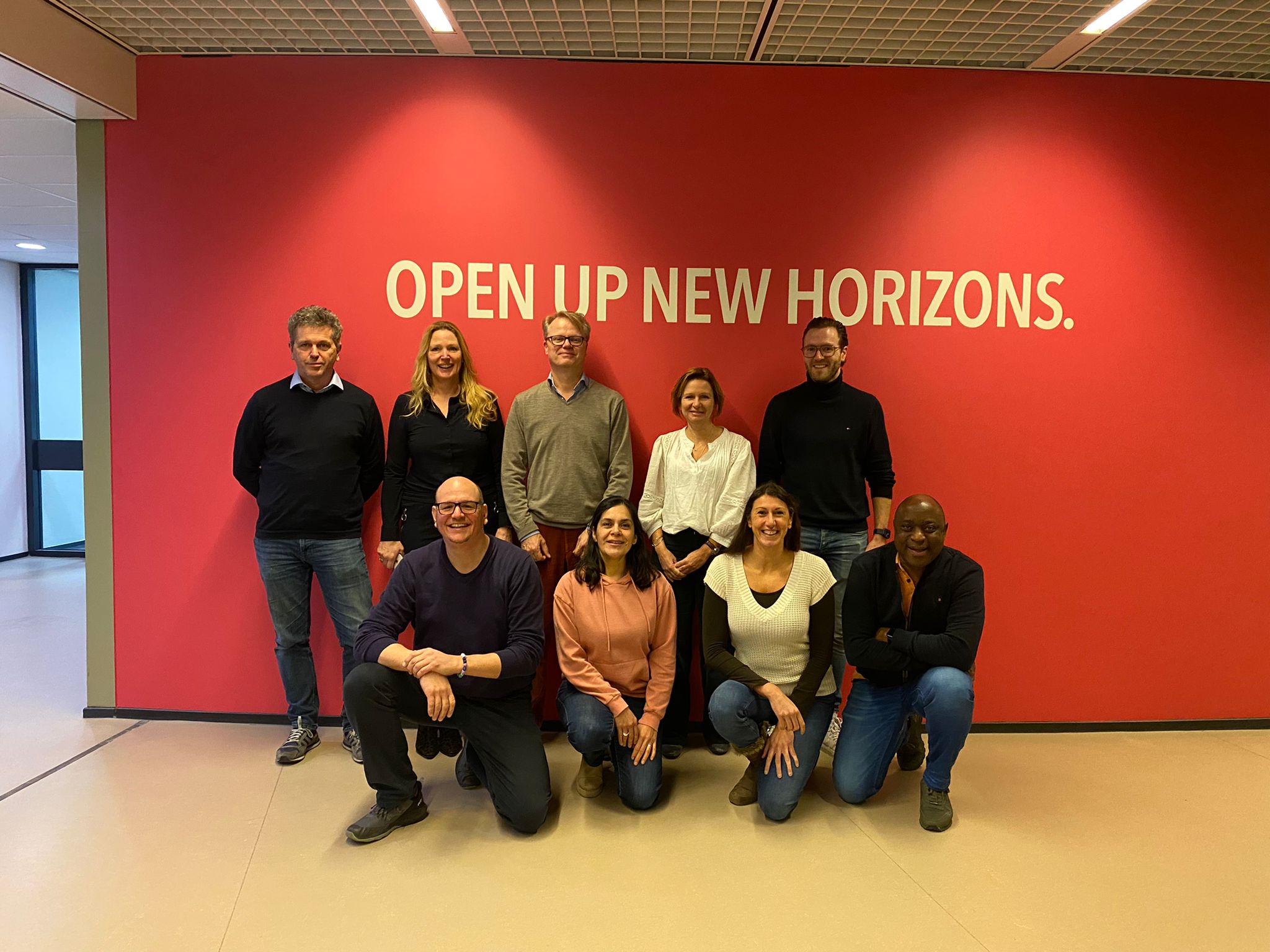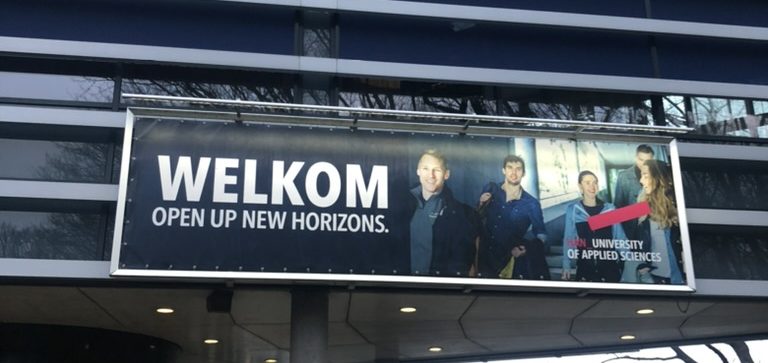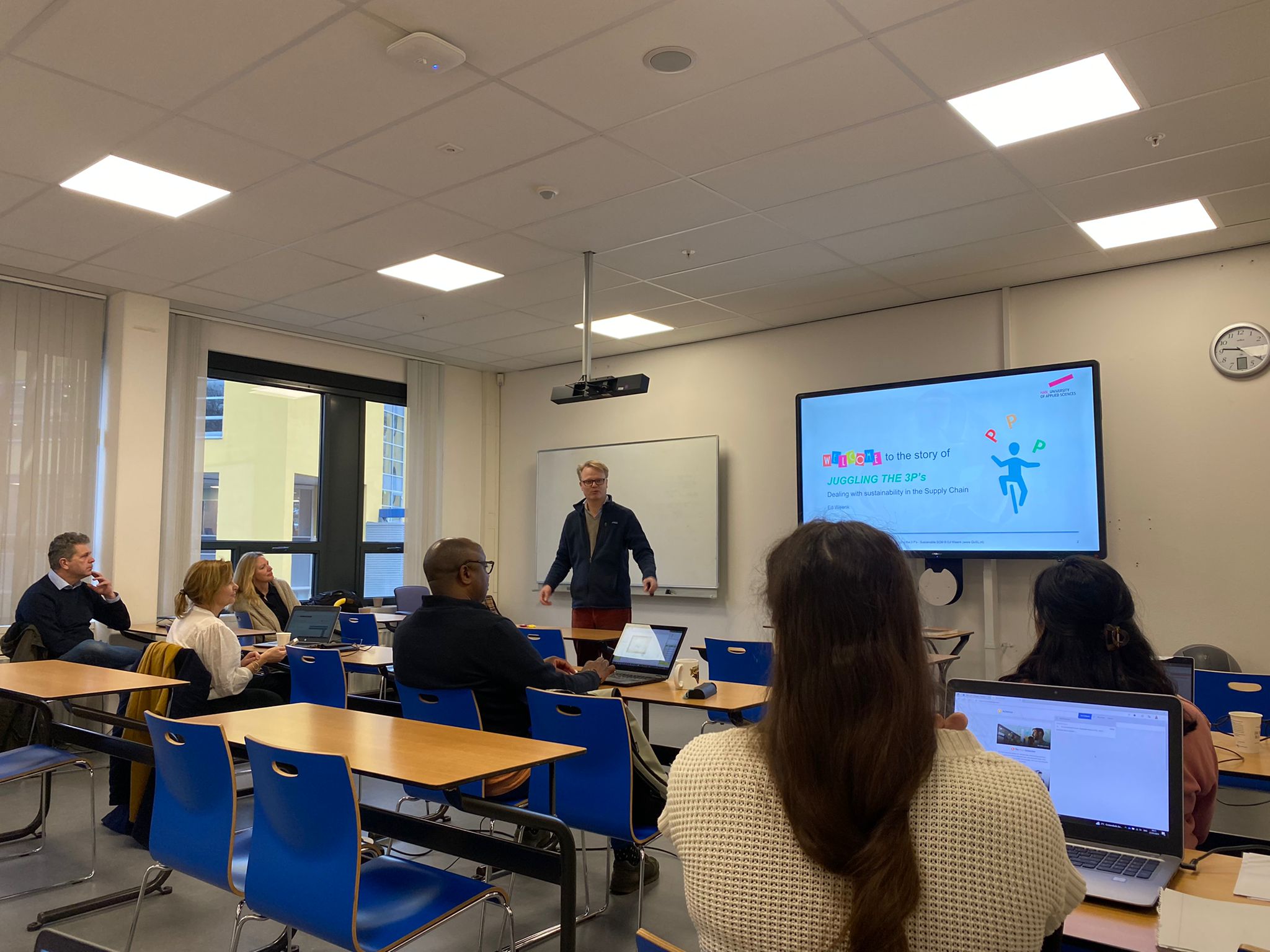
blogs
Revolutionizing Sustainability Education: Game-based Learning at HAN University with The Triple Connection
Game-based Learning: A Sustainability Game Changer
On Friday, 27th January 2023, six educators from HAN University of Applied Sciences (HAN) were immersed in a game-based Train the Trainer session focused on sustainability, facilitated by Inchainge.
“I had no prior knowledge of The Triple Connection before entering the session today, but I had my doubts. How can you measure the sustainability effects? Won’t it be too simplified?” says Rogier, an educator at HAN University of Applied Sciences.
Despite initial skepticism, the participants were pleasantly surprised by the complexity and effectiveness of The Triple Connection. “One of the most impactful aspects of the Triple Connection experience for me was the realization of the need for focus,” said Oliver Ntenje, one of the participating educators. “You can’t be the best at everything. The game’s emphasis on making choices and focusing on specific areas of success really drove that point home. It was an eye-opening experience and helped me understand the importance of communicating that message to our students.”
“I was initially concerned that the complex concepts of juggling the three Ps would be too challenging to effectively gamify,”
I was initially concerned that the complex concepts of juggling the three Ps would be too challenging to effectively gamify,” adds Rogier. “However, the level of complexity I experienced during the session was just right and exceeded my expectations.”
HAN has a proven track record of using innovative learning methods, like business games, in its curriculum. By adding The Triple Connection HAN aims to further solidify that position.
The educators’ positive experiences show the potential of game-based learning in revolutionizing sustainability education and unlocking the potential of sustainable solutions through play.

The Triple Connection: A Hands-On Approach to Sustainability
The Triple Connection is a business simulation game. It puts players in the role of implementing sustainable strategies within a virtual company. The game highlights the Triple P trade-offs (people, planet, and prosperity) and covers 13 of the 17 SDGs set by the United Nations.
Players must balance strategic ambition with improvement projects and interventions along the value chain and maintain profitability. This hands-on approach gives learners a realistic view of the challenges and trade-offs of sustainability.
Making decisions and facing the consequences deepens learners’ appreciation for the intricacies of sustainability and the impact of their choices on people, planet, and prosperity. The game is designed to help them understand real-world complexities and be better prepared to tackle them in the real world.
The Start of a Journey
“I joined HAN four years ago and was part of the second-year course which had a rocky start. That’s when Oliver and I decided to take action. We identified areas for improvement and introduced The Fresh Connection.”, says Rogier van Weelden.
Rogier and Oliver Ntenje, both educators at HAN University, share their extensive experience of using Inchainge’s business games The Fresh Connection (SCM), The Cool Connection (SCF and Working Capital Management), and The Blue Connection (Circular Economy) in their faculty and beyond.
Rogier was first introduced to The Fresh Connection when it was launched 12 years ago while he was still a student. He went on to pursue a career in the field of supply chain and gathered experience in various positions at different companies. Upon returning to HAN as a lecturer four years ago and now also a program lead of the SCM study stream, he has come full circle, as this is also where he started his studies.

Oliver Ntenje is a lecturer in Blockchain Technology and a senior lecturer and researcher of logistics at HAN. Forming part of Rogier’s program lead team, he is responsible for leading the development and delivery of academic courses within the four-year Supply Chain Management study stream, and for coordinating a team of 10 academic professionals from diverse cultural backgrounds.
Both Rogier and Oliver have seen the benefits of using these games in their teaching. They believe that adding a game to the curriculum isn’t a one-size-fits-all solution. It takes careful planning and design to make it effective. The right courses and moments should be identified for incorporating gameplay. Ultimately, course design is what makes or breaks the effectiveness of game-based learning.
The Benefits and Impact of Game-Based Learning
Oliver believes that “education is not just about grades and performance, it’s about creating an environment that engages and motivates students to learn.” He cites research conducted over several years using The Cool Connection at HAN, which showed improvements in students’ grades and a deeper understanding of the subject. “Students are really happy playing this game because they can see what it is in real life without having to be there,” says Oliver.
“Students are really happy playing this game because they can see what it is in real life without having to be there,”
Rogier highlights the role of competition in game-based learning, saying, ” They want to do better than the other teams. But they also make many mistakes and that’s okay. The biggest learning takes place when it goes horribly wrong. The game provides a safe space for students to make mistakes and learn from them. ”
Next, Oliver explains how the game also helps develop soft skills, like group dynamics through experiential learning. “Playing the game gives us opportunities to give feedback and help students improve,” he says. “We can zoom in on specific issues and give targeted advice. Team dynamics play a big role in our educational goals. We aim to create global citizens who can collaborate effectively, regardless of background or cultural differences. This hands-on approach helps develop important soft skills.”
“Compared to just studying theory from a book, students feel a sense of responsibility for the actual outcome, which definitely increases engagement”
Rogier says that the higher level of engagement from students who feel responsible for the outcome of the game contributes to its success. “Compared to just studying theory from a book, students feel a sense of responsibility for the actual outcome, which definitely increases engagement,” he says.
Although not all students may enjoy the game, the majority have responded positively and have seen a positive impact on their learning. Some students find it too complicated, so the concepts can be simplified. Others just don’t like gamification, which is a personal preference. “You can’t please everyone, but overall, the level of engagement is higher,” says Rogier. Oliver agrees, “Most students love the game and talk about it all the time.”
Exploring Sustainability at HAN: Insights from the Train the Trainer Program

Both Rogier and Oliver had the opportunity to participate in the Train the Trainer program for The Triple Connection (TTC) and gain valuable insights into sustainable strategies in business. They discuss the centrality of the SDGs in the sustainability module for their international business program and the significance of sustainable innovation.
“Our international business program is designed in such a way that the first year and a half is generic for all students, followed by a specialization track,” says Rogier. “Sustainability is a crucial aspect of the curriculum, with the SDGs at its core, and the supply chain track includes a module on sustainable supply chain management.”
Ed Weenk, the trainer from Inchainge who was on-site at HAN, shared his expertise on sustainability during the program. He emphasized the importance of focus in achieving success in the field. “By defining what you want to excel at and making improvements in that area, you can communicate your goals and objectives more effectively to your stakeholders,” says Oliver, highlighting the practical application of Ed’s teachings.
The educators also talked about the importance of addressing contradictions, such as advocating for change through activism while participating in actions that may contradict one’s beliefs, to bring greater awareness of different perspectives. “By examining these dilemmas, you start to understand the importance of focus,” says Oliver.
Inchainge’s “Train the Trainer” (TTT) program certifies educators and professional trainers to use its business games in the classroom. Participants receive the knowledge and skills needed to ensure that their students receive the best possible experience.
The TTT event at HAN University was well-received, with participants praising its hands-on approach.
“The TTT event at HAN University was successful,” said Corine van der Sloot, Global Director of Education at Inchainge. “Our goal is to help educators bring real-world business scenarios into the classroom and equip them with the tools to teach sustainability. We’re looking forward to further strengthening our longtime partnership with HAN and supporting their educators.”
HAN Paves the Way Forward in Sustainability Education
To wrap it up, HAN is leading the charge in sustainability education with game-based learning. With The Triple Connection, educators like Rogier and Oliver Ntenje can bring real-world experience to students in a safe, virtual environment. This immersive approach leads to a deeper understanding of sustainability and its challenges and opportunities.
Big thanks to Oliver and Rogier for sharing their stories and inspiring others. Their dedication to game-based learning shows just how impactful these methods can be in creating a sustainable future. Keep up the great work, HAN!
Would you like to learn more?
If you’re an educator looking to step up your sustainability game, The Triple Connection is definitely worth checking out. You can directly schedule a demo with us or you can read more on our landing page.
